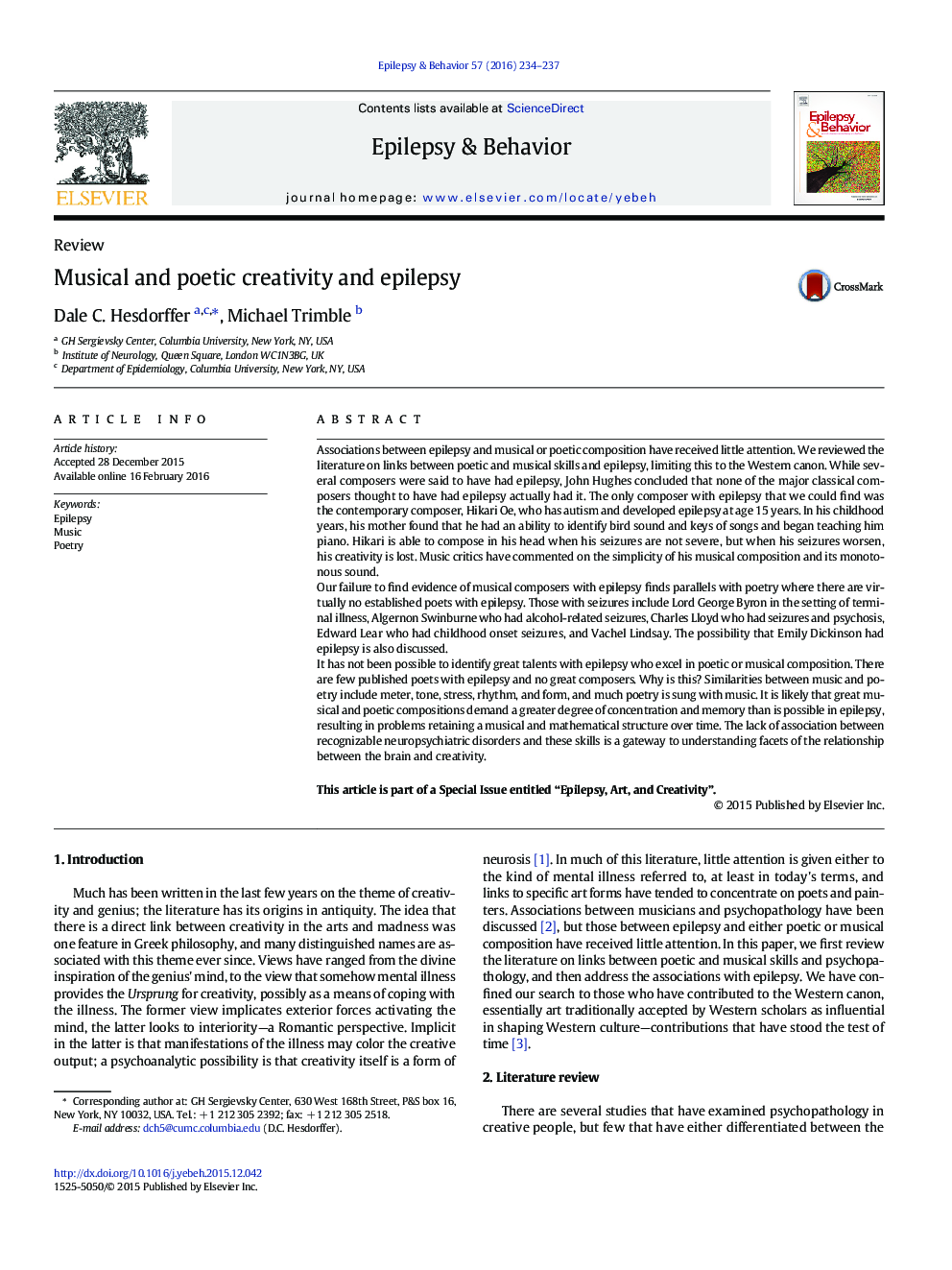| کد مقاله | کد نشریه | سال انتشار | مقاله انگلیسی | نسخه تمام متن |
|---|---|---|---|---|
| 3049568 | 1185878 | 2016 | 4 صفحه PDF | دانلود رایگان |
• Great poets and musical composers are rare or nonexistent in people with epilepsy.
• Hikari Oe is a composer with autism and epilepsy who writes simple music.
• Few great poets have had epilepsy or seizures.
• Music and poetry share meter, tone, stress, rhythm, and form.
• Epilepsy affects cognition, essential for the composition of great music and poetry.
Associations between epilepsy and musical or poetic composition have received little attention. We reviewed the literature on links between poetic and musical skills and epilepsy, limiting this to the Western canon. While several composers were said to have had epilepsy, John Hughes concluded that none of the major classical composers thought to have had epilepsy actually had it. The only composer with epilepsy that we could find was the contemporary composer, Hikari Oe, who has autism and developed epilepsy at age 15 years. In his childhood years, his mother found that he had an ability to identify bird sound and keys of songs and began teaching him piano. Hikari is able to compose in his head when his seizures are not severe, but when his seizures worsen, his creativity is lost. Music critics have commented on the simplicity of his musical composition and its monotonous sound.Our failure to find evidence of musical composers with epilepsy finds parallels with poetry where there are virtually no established poets with epilepsy. Those with seizures include Lord George Byron in the setting of terminal illness, Algernon Swinburne who had alcohol-related seizures, Charles Lloyd who had seizures and psychosis, Edward Lear who had childhood onset seizures, and Vachel Lindsay. The possibility that Emily Dickinson had epilepsy is also discussed.It has not been possible to identify great talents with epilepsy who excel in poetic or musical composition. There are few published poets with epilepsy and no great composers. Why is this? Similarities between music and poetry include meter, tone, stress, rhythm, and form, and much poetry is sung with music. It is likely that great musical and poetic compositions demand a greater degree of concentration and memory than is possible in epilepsy, resulting in problems retaining a musical and mathematical structure over time. The lack of association between recognizable neuropsychiatric disorders and these skills is a gateway to understanding facets of the relationship between the brain and creativity.This article is part of a Special Issue entitled “Epilepsy, Art, and Creativity”.
Journal: Epilepsy & Behavior - Volume 57, Part B, April 2016, Pages 234–237
